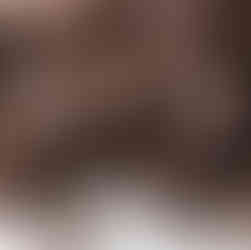Sugar, Caffeine & Spirituality
- Mary Ruth Velicki

- Jul 8, 2020
- 4 min read
Updated: Jul 7, 2021

I woke up with the Coca-Cola sign in my mind, and knew I would be writing about sugar and caffeine. Over the years, I've become increasingly more aware of my attachment to both of these substances. Just thinking about candy will make my mouth water, and I'm currently suppressing a desire to fire up my Keurig. I'm not alone. Most people love coffee and refined sugar. About 90% of humans ingest caffeine on a regular basis, and most of us eat refined sugar in some form every day.
Caffeine it is many forms (coffee, tea, soft drinks, energy drinks) wake us up and sit beside us in the car and at our desks. We meet for coffee, have coffee breaks, and go to special shops and wait in long lines to get a cup. Throughout history, the use of caffeine has amped up our concentration and our productivity, and there are studies that show that caffeine may improve mental and physical performance to some degree.
And like any chocolate lover will tell you, it is especially wonderful when caffeine is mixed with sugar. Sugar is featured in most of our celebrations. It shows up in Christmas cookies and stockings, in Valentine's day chocolates and candy hearts, in cakes at birthdays and weddings, and in Easter baskets. When I was a child, the ultimate candy event was always trick-or-treating on Halloween. Running house to house in the dark to gather up candy from strangers was like having manna rain down from heaven.
Few of us think of these substances as drugs, and our daily use as an addiction. However, many of us have experienced what the research is now suggesting... that sugar and caffeine are addicting. There are even studies that show that consuming sugar and hard-core drugs like cocaine may activate the same brain areas. We don't like to see our beloved Starbucks or See's Candies in this light, but perhaps they are a bit like dispensaries for socially-sanctioned drugs.
Many of us have also experienced the common symptoms of caffeine withdrawal which include: headache, lethargy, fatigue, difficulty concentrating, decreased motivation, irritability, loss of confidence, dysphoria (a state of unease or general dissatisfaction with life), and even intense distress. "Caffeine withdrawal" is even included in the Diagnostic and Statistical Manual of Mental Disorders (DSM-5) which is the Bible of psychiatric diagnoses. That first cup of coffee actually suppresses symptoms of withdrawal that begin while we are sleeping. No wonder we like it so much.
To determine the effect of sugar and caffeine has on you, consider stopping the use of either substance for a week and feel the difference for yourself. And then, notice what happens when you consume it again. This is probably the most powerful way to appreciate how these substances contribute to your mental and physical state.
What's Spirituality Got to Do With It?
Caffeine may decrease our ability to rest, and to move into a state of stillness or gentle focus where we can perceive and experience our lives in new or expanded ways.
For example, caffeine works by blocking the action of the molecule adenosine which gradually accumulates in the brain over the day and prepares us to rest. However, the levels of adenosine continue to rise, and when the caffeine is eventually metabolized, the tiredness returns. Caffeine can also interrupt our deep sleep. So even though we feel energized, caffeine can lead to more tiredness, and prompt us to use more of it to move out of that state.
Caffeine also increases our spotlight consciousness, where we focus on a point of attention. However, it doesn't seem to enhance our lantern consciousness, where our attention is over a broader field. This diffuse form of attention, which is often exhibited by young children and many people on psychedelics, can amp up our creativity.
There is also evidence that caffeine and refined sugar activate the release of endorphins, the feel-good neurotransmitters in our brains. The fact that these substances make us feel good sounds like a good thing; however, it may limit our power to choose our focus. Instead of being able to sense the Love all around us, we may subconsciously focus on the smaller version that is produced in our body-mind when we consume these substances.
Finally, when we use substances to feel better, we may also be missing out on an opportunity to become more aware of how we are really feeling deep down. This introspection can be a key to releasing what we no longer want to carry.
I find it surprising that limiting my consumption of sugar and caffeine has been one of the most difficult parts of my healing journey. Diabetes runs in my family, and my blood sugar was rising, and even a fear of disease or death did not limit my sugar consumption! However, when I considered that decreasing this mental and physical attachment to sugar and caffeine might be a way to expand my awareness- I became more motivated. Over the years, as my spiritual awareness expanded, I've experienced much more joy and love in my life. And who doesn't want more joy and love?
For more information about caffeine and its effects check out this article by Michael Pollan. https://apple.news/Ai_xhvNCQRw-sjawQVdSdLg





















Comments